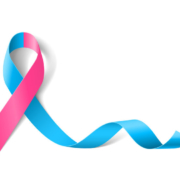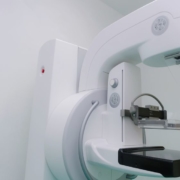13 December 2016
A study published in the journal Cancer concluded that women with larger social networks have better breast cancer (BC) outcomes. In noting that large social networks predict lower overall mortality in healthy populations, the researchers analyzed a group of women who were already participating in four cohort studies. They evaluated associations between social networks within 2 years of a BC diagnosis and outcomes. Among 9267 women, there were 1448 recurrences and 1521 deaths. 990 of the deaths were due to breast cancer. In the patients studied, they noted that:
- Socially isolated women were more likely to be Caucasian, college-educated and nulliparous (never had children)
- Socially isolated women were less likely to be physically active and were more likely to be smokers, drink more than the recommended amount of alcohol, and be overweight
- Women who were socially isolated were more likely to undergo lumpectomy and were less likely to receive chemotherapy and hormonal therapy
- There were no associations between social isolation and age, menopausal status at diagnosis, cancer stage, and treatment with radiation
Regarding outcomes:
- Women with smaller social networks had a higher risk of recurrence, BC specific mortality and overall mortality
- Adjustments for lifestyle and treatment factors attenuated the associations with recurrence and mortality, but the associations remained statistically significant
- Social network associations with recurrence and breast cancer specific mortality were stronger for patients with Stage I and II BC compared to Stages III and IV
- Associations between social networks and outcomes did not differ based on age, time since diagnosis, ER/PR status, Her2/neu status, or treatment
- Being “unmarried / unpartnered” was associated with worse BC specific and overall mortality for older but not younger white women or non-white women (any age)
- Community ties predicted lower risk of BC specific and overall mortality in older white and Asian women but not in other groups
- Religious participation was not associated with outcomes
So what to make of this study and these findings? The first point to make is that this study notes associations, or correlations – not cause and effect. Cause and effect cannot be determined from this type of cohort study, and a randomized controlled trial to assess the relationship between social networks and breast cancer outcomes would be impossible. While the authors attempted to control for many variables, the study population was not representative of the average US breast cancer population. In addition, there was no assessment of the quality of the social networks, a point I raised in a CNN.com interview regarding the study.
Cancer treatment is challenging even for those with a large supportive social network. No one should have to feel they are going it alone – there are many resources for help and support, but you may need to ask (hard to do for many independent women!). However, if you are one of those women (like me) who keeps her social network very small, this study should not prompt more worry during an already stressful time.
Correlation does not equal causation, by Lisa Simpson:






